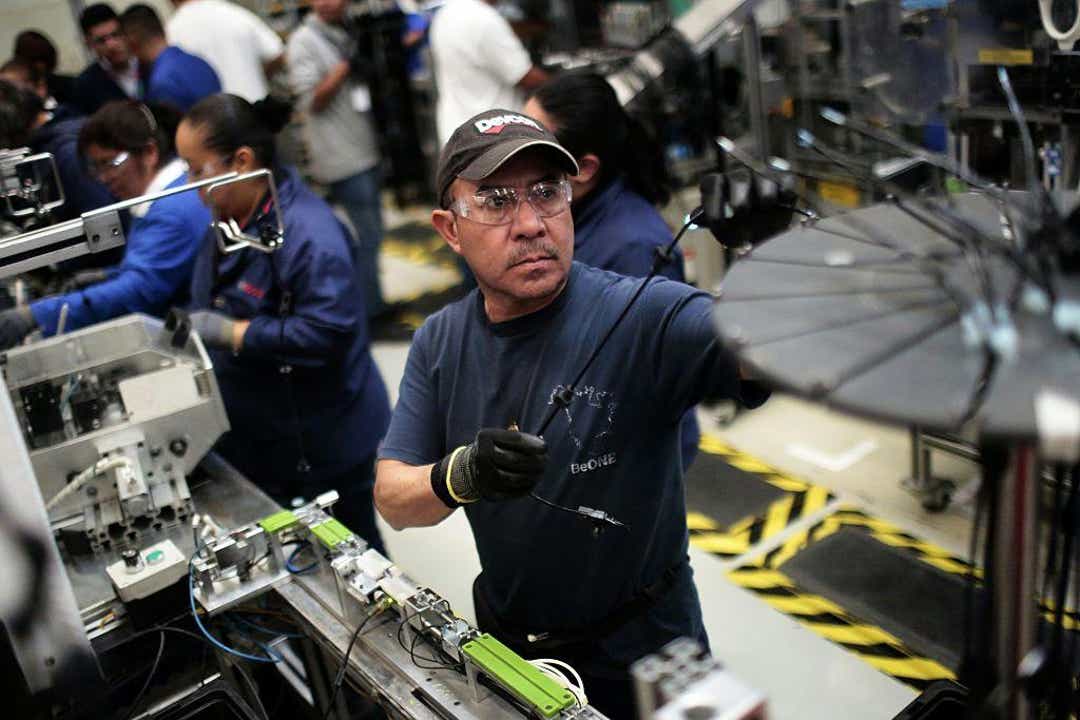Automakers are gearing up for a production restart Monday that will depend on the availability of parts produced in Mexico, where concerns have been raised about potential under-counting of COVID-19 cases.
Nearly 40% of all part imports into the U.S. come from Mexico, meaning the success of any domestic industry restart will rest heavily on a successful simultaneous rev-up south of the border.
Mexico has reported far fewer coronavirus cases than U.S. and Canada, but experts have questioned the veracity of the nation's reporting. Mexican officials say the virus has caused 4,477 deaths in Mexico, compared to 87,965 in the U.S. and 5,553 in Canada.

Mexican President Andrés Manuel López Obrador announced plans on Wednesday to begin a phased reopening in his country on May 18, coinciding with a scheduled restart of production at many U.S. auto plants. By Thursday, the López Obrador administration pushed the restart date of its auto sector back to June 1, adding confusion to a situation in which automakers are desperate for clarity after nearly two idle months.
Tony Payan, director of the Center for the United States and Mexico at Rice University's Baker Institute in Houston, said Mexico's restart could be premature whether it takes place on May 18 or June 1 because COVID-19 testing there has paled in comparison to the American pace, which has been criticized for being substandard by Trump administration critics.
"By almost any international standard, Mexico has really botched (and) completely mangled the management of this crisis," Payan said. "They've chosen not to measure the problem. Mexico is at the bottom of the (Organisation for Economic Co-operation and Development) countries at least in terms of rational record keeping of deaths. They just don't know."
Payan said Mexico has conducted about one-half of one test per 1,000 people, compared to a U.S. rate of about 27 or 28 people per 1,000 residents.
"At this stage of the pandemic, there's no way to know the scope of the problem if you refuse to test," he said. "The numbers in Mexico are based on people who have been hospitalized or have shown very serious symptoms. The multiplier could be many times more."
In addition to the testing challenges, Payan said Mexico has experienced many of the problems that dogged the U.S. in the early days of its efforts to ramp up federal and state responses to the coronavirus.
"It's mainly the same issues other countries are facing," he said. "No personal protection equipment — it's dismal. Health care systems are overwhelmed. Hospitals in Mexico City are full."
The uncertainty presents a major problem for automakers as the U.S. industry attempts to rev up. Already, at least one company, Daimler AG, has suspended production of SUVs at one of the first U.S. plants to reopen in Tuscaloosa, Alabama, due to a shortage of Mexican parts.
"In the first week of the ramp-up, (Mercedes-Benz U.S. International) has begun limited production with a significantly reduced number of team members in 1 shift," the company said in a statement that was provided to The Detroit News. "Due to respective country-specific regulations and their impact on international supplier sites, we expect temporary interruptions."
Kristin Dziczek, vice president of industry, labor and economics at Ann Arbor's Center for Automotive Research, said the problems easily could be exacerbated if Mexico handles its coronavirus restart poorly.
"There are very few models that don't have some Mexican content," Dziczek said, noting that 39% of all part imports into the U.S. in 2019 came from Mexico. "A synchronized restart with Mexico is really critical. You need all the parts to make a car."
Dziczek said Mexico is a critical source for several important parts that are used to build cars in domestic plants, such as wiring harnesses used to connect critical electronic systems within vehicles.
"Eighty percent of wiring harnesses come through the Mexican border," she said. "You can't build a car without the wires. It's not something that we make very many of domestically because it's very labor intensive."
The López Obrador administration's restart plan calls for a color-coded alert system (red, orange, yellow, and green) similar to the one used previously by the U.S. Department of Homeland Security for terror threats that will be used to notify Mexicans of the level of activities that are allowed in a given state at the time.
John Bozzella, president and CEO of the Alliance for Automotive Innovation, which lobbies for automakers in Washington, said in a statement the industry's' "focus continues to be on the health and safety of our team members, customers and communities.
"With production facilities, supply chains and other vital operations located throughout the U.S. and North American region, we appreciate the ongoing support and engagement from the administration — as well as state, local and regional partners — as we move toward the safe resumption of operations,” he said.
Michelle Krebs, senior analyst for Autotrader, said the availability of Mexican parts is a major concern: "Automakers are relying heavily on Mexico to build an adequate supply of parts so they can smoothly restart assembly plants and not have to stop and start again for lack of parts."
klaing@detroitnews.com
(202) 662-8735
Twitter: @Keith_Laing
"auto" - Google News
May 16, 2020 at 04:34AM
https://ift.tt/2z4TGmi
COVID-19 uncertainty in Mexico complicates auto industry restart - The Detroit News
"auto" - Google News
https://ift.tt/2Xb9Q5a
https://ift.tt/2SvsFPt
Bagikan Berita Ini














0 Response to "COVID-19 uncertainty in Mexico complicates auto industry restart - The Detroit News"
Post a Comment